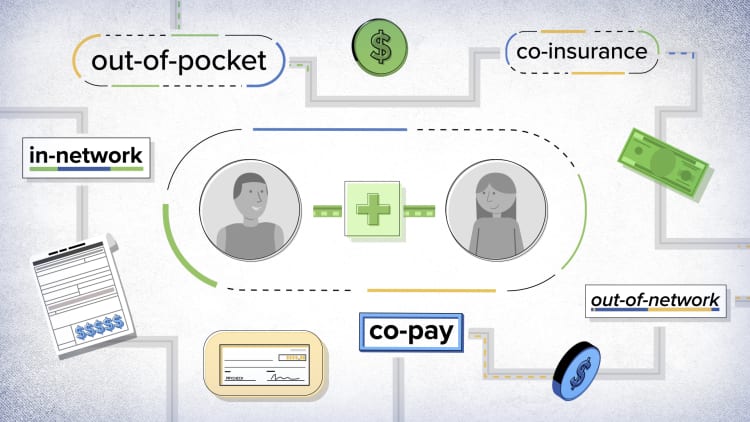Chances are that you're overlooking a major retiree health care expense — and it'll take a bite out of your pocket book.
It's the cost of dental care.
In all, 37 million people — nearly 2 out of 3 Medicare beneficiaries — have no dental coverage, according to the Kaiser Family Foundation.
Medicare doesn't cover crowns, dentures, fillings and cleanings.

Beneficiaries who went to the dentist in 2016 paid an average of $922 in out-of-pocket expenses, Kaiser found.
People who do have dental insurance tend to get it through private Medicare Advantage, Medicaid and other private plans, including individually purchased coverage and workplace retiree insurance, according to Kaiser.
The organization recently examined potential policy changes that could expand dental coverage to Medicare beneficiaries.
Those changes include adding a dental benefit to Medicare Part B (medical insurance) and creating a voluntary dental benefit under a new part of Medicare.
Specialty dental work
Your twice-annual dental visit on its own may be affordable.
The cost of a simple cleaning for an adult averages around $129 for patients in Manhattan, according to FAIR Health Consumer, a site that estimates the cost of medical procedures.
Patients who are uninsured or who are seeing a dentist that's out-of-network may expect to shell out $210 for this service, FAIR Health found.
It's a different story if you're getting a crown, fillings or dentures.
the cost of getting a ceramic or porcelain crown over metal can run up to $2,000 for patients who see out-of-network dentists or who have no insurance, according to FAIR Health.
"You'll want insurance for those higher costs, including fillings, crowns and dentures," said Gretchen Jacobson, associate director with the Kaiser Family Foundation's program on Medicare Policy.
Expenses despite insurance
While dental coverage can take the edge off some costs, patients may still be on the hook for high bills.
Kaiser gave the example of a 72-year-old patient who received treatment for tooth decay, three fillings and two crowns. This same patient received additional periodontal maintenance six months later.
He would be responsible for $4,300 in expenses without insurance, Kaiser found.
Even with dental coverage via Medicare Advantage, this same patient would be on the hook for up to $3,300.
Deductibles and coinsurance — the percentage of costs the client must pay for — are the out-of-pocket expenses that drive costs for these patients.
Ask questions

Retirees need to become empowered consumers to get the most out of their dental care.
Here's where to begin, according to certified financial planner Carolyn McClanahan, who is also a physician and director of financial planning at Life Planning Partners in Jacksonville, Florida
Know your plan: Whether it's offered to you through a retiree health plan or as an add-on to your Medicare Advantage plan, get a solid understanding of your deductibles, applicable co-payments and coinsurance.
Make sure your dentist takes your coverage: Your insurance won't help you much if you're paying more because your provider is out-of-network.
More from Personal Finance:
Tesla dips into the car insurance business
20 US cities with the best deals for entertainment
What you should know before giving a debit card to your kids
Grow your emergency fund: Nobody plans for tooth decay. Consider that surprise implant or crown to be an emergency expense, and save accordingly, McClanahan said.
If you have a health savings account, you can't fund it if you're on Medicare. However, you can tap it to pay for dental and other qualified medical costs on a tax-free basis.
Find a second opinion: "Some dentists are more aggressive than others," said McClanahan. "If someone is recommending really expensive work, get a second opinion."


